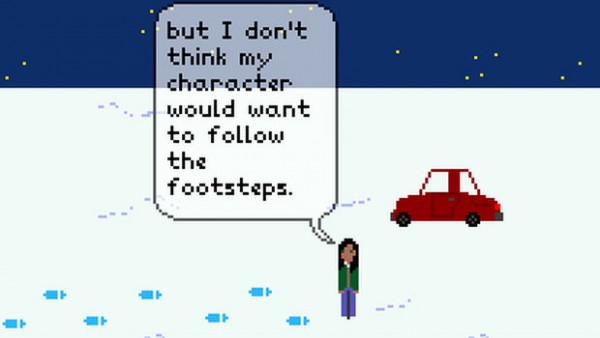Jason Rohrer
Sunday, 10 July 2011
Work from his oeuvre.
“I am prepared to believe that video games can be elegant, subtle, sophisticated, challenging, and visually wonderful,” Roger Ebert, the world’s most famous film critic, wrote in 2005. “But I believe the nature of the medium prevents it from moving beyond craftsmanship to the stature of art. To my knowledge, no one in or out of the field has ever been able to cite a game worthy of comparison with the great dramatists, poets, filmmakers, novelists, and composers…video games represent a loss of those precious hours we have available to make ourselves more cultured, civilized, and empathetic.”
This is what the video-game industry lacks. Not money; it rakes in $40 billion globally per year, even more than Hollywood. Not influence; it’s got a lock on the hearts and minds of America’s eighteen- to thirty-four-year-old males. What it lacks is legitimacy. The video game in 2008 is a ghettoized creative form, more ghettoized even than comic books; at least comics have their hipster auteurs, their graphic novelists, their Chris Wares and Daniel Cloweses and Brian K. Vaughans. But there are no video-game auteurs whose names ring out in the wider culture.
According to Jason Rohrer, the reason for this is simple: “Ebert’s right.” Games suck. Game companies have spent so many years trying to make skulls explode complexly and water ripple prettily that they haven’t invested any time in learning how to make games that are as emotionally dense as the best novels and films. Most games are a waste of time. Soulless. Empty. Rohrer is far from the only game-maker who believes this. In fact, a growing number of game-makers in positions of power at large companies — Electronic Arts, Ubisoft, etc. — aren’t interested in continuing to defend the industry against its critics. Because, one, it’s hard to see how the critics are wrong, hard to see how Halo 3 and Grand Theft Auto IV aren’t what they seem to be. Murder simulators. Really fun murder simulators. And, two, if you’re a middle-aged game-maker and you’re going to see Children of Men on the weekend with your wife and kids and getting your mind blown, you hit a point where you want to do something better, more important, than making blood flow realistically…” – Esquire.




